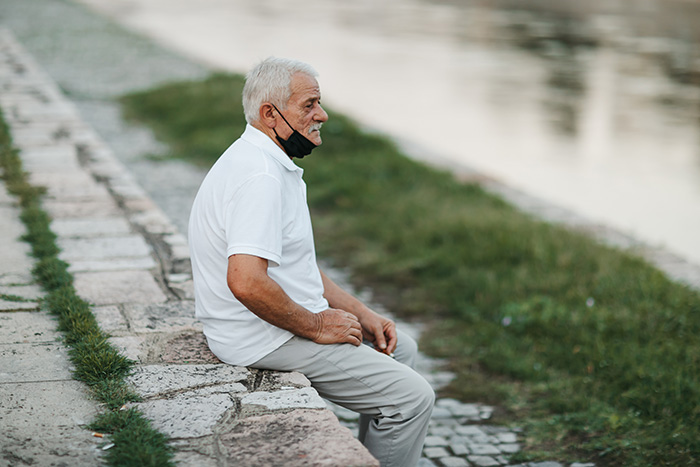Loneliness Grows as a Dangerous Epidemic

It is a well-accepted verity that we humans crave the company of others. How much and with whom is entirely personal.
Yet researchers are warning that too many Americans face the grim prospect of isolation and loneliness, putting their health in danger and creating what could be a crisis as troubling as obesity.
“As a species we are social creatures and we need contact with each other,” explains Dr. D. Jeffrey Newport, a psychiatrist with the University of Miami Health System. “There is some variability, but we all seek connection and are dependent on the support of the community. So when people report feeling lonely or facing social isolation, they are more likely to have poor health outcomes.”
At a recent presentation at the annual meeting of the American Psychological Association, a team of researchers used data from 70 studies to conclude that the effect of this “loneliness epidemic” was equal or greater than several other health risk factors, such as obesity and smoking. In another analysis of 148 studies, researchers reported that having more social connections lowers the risk of early death as much as 50 percent.
These conclusions are especially troubling for both public policy makers and the medical community.
More than half of Americans are unmarried and more than one in four live alone, according to the U.S. Census. In a separate review, the AARP’s Loneliness Study found that about 42.6 million American adults over 45 suffer from chronic loneliness.
What’s more, experts warn that, as the population ages, this health threat will likely worsen. Maintaining connections grows physically more challenging when we grow older.
Newport, who is also a professor of Psychiatry & Behavioral Sciences and Obstetrics & Gynecology at the Miller School of Medicine, points out that loneliness and social isolation are not the same. One can be surrounded by people and still feel lonely, while isolation is often caused by actual physical barriers. He cites a line from Billy Joel’s famous song, The Piano Man: “Yes, they’re sharing a drink they call loneliness/ But it’s better than drinkin’ alone.”
The reasons for social isolation and loneliness are many, Newport adds.
Among older adults, health problems can contribute to isolation.
“It can work in the other direction, too,” he says. “If you’re having a hard time getting around, it becomes harder to keep up connections.”
We also have become a more mobile society, with the economic ability to afford our own separate living spaces.
In addition, Newport believes social media can have deleterious effects on physical interactions. Though new technology helps us keep in touch, the bonds created tend to the superficial.
“My personal observation is that using electronic media is not the same as making the human connections that we need,” Newport says. “You can walk into a room and everyone is staring at their smart phones instead of talking to each other.”
Our ability to move cross country or cross continent also “cuts people off from long term relationships and it doesn’t always provide the support needed when they’re in a new place.”
Newport cautions that while there is strong enough data to correlate loneliness with a higher risk of death over time, there still is no “clear, causative” link between the two.
Nevertheless, plenty can be done on a public or personal level.
Experts have suggested doctors screen for social isolation and town planners create common spaces to bring people together. People should also plan for ways to keep connected as they age, particularly when they leave the workforce.
Typically, Newport adds, we socialize with family and those who share common interests. “I encourage people to foster friendships separate from family. Find people who are interested in the same things you are and stay connected.”

In Their Words
Ana Veciana-Suarez, Guest Contributor
Ana is a regular contributor for the University of Miami Health System. She is a renowned journalist and author, who has worked at The Miami Herald, The Miami News and The Palm Beach Post. Visit her website at anavecianasuarez.com or follow @AnaVeciana on Twitter.
Tags: Jeffrey Newport, loneliness, mental health, psychology, social isolation
